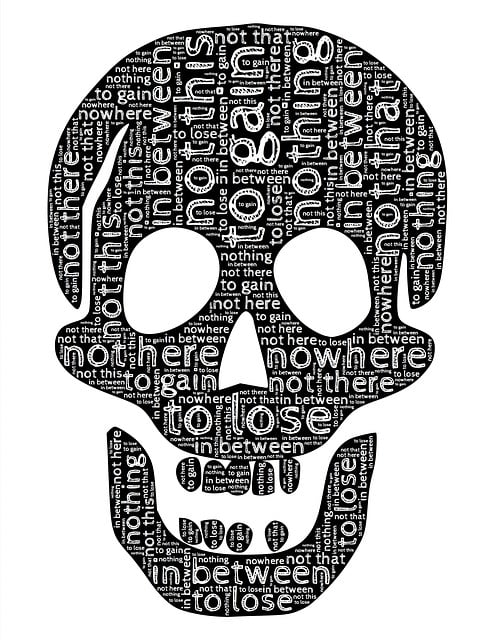Managing stress effectively involves identifying and eliminating time wasters through habit analysis and task prioritization tools like Eisenhower Matrix. Setting realistic goals by breaking tasks into manageable chunks reduces stress, enhances focus, and prevents procrastination. Using planners, reminders, mindfulness exercises, and regular breaks integrates efficient time management strategies for mental well-being in daily routines.
In today’s fast-paced world, effective time management is key to minimizing stress and maximizing productivity. Learn how to identify and eliminate time wasters while prioritizing tasks that truly matter. Set realistic goals, break them down into manageable chunks, and utilize powerful planning tools and reminders to stay on track. Discover the benefits of mindfulness and scheduled breaks for mental rejuvenation. These strategies will empower you to manage your time effectively, reduce stress, and enhance overall well-being.
Identify Time Wasters and Prioritize Tasks
Identifying time wasters is a crucial step in managing stress effectively. Many daily activities and tasks can consume more time than they’re worth, leading to feelings of overwhelm and anxiety. Start by observing your habits and routines; are there specific activities that consistently drain your time? Common culprits include excessive browsing, social media scrolling, or engaging in unproductive meetings. Once identified, these time wasters should be prioritized lower on your to-do list.
Instead, focus on tasks that contribute significantly to your goals and well-being. Prioritize based on urgency and importance—use tools like the Eisenhower Matrix to categorize tasks as urgent/important, important but not urgent, urgent but not important, or neither. By shifting your focus towards meaningful activities and delegating or eliminating time-consuming distractions, you can better manage your time and reduce stress levels.
Set Realistic Goals and Break Them Down
Setting realistic goals is a powerful tool in managing stress effectively. When we set ourselves overwhelming tasks, it can lead to a sense of being overwhelmed and increase our stress levels. Instead, break down larger objectives into smaller, manageable chunks. This approach allows for better focus and a sense of accomplishment as you tick off each completed task.
By setting achievable goals, you create a clear path forward, making it easier to prioritize your time. This strategy helps prevent procrastination and ensures that you allocate your energy where it matters most. Remember, realistic goal-setting is not about settling for less; it’s about ensuring your aspirations are aligned with your capabilities, leading to better productivity and reduced stress.
Utilize Planning Tools and Reminders
Managing stress effectively is an integral part of maintaining a healthy lifestyle. One powerful tool in your arsenal is the utilization of planning tools and reminders. Start by integrating digital or physical planners into your daily routine. These tools allow you to visually map out tasks, appointments, and deadlines, providing a clear overview of your commitments. By doing so, you gain a sense of control over your time, reducing the mental burden often associated with stress.
Additionally, take advantage of reminders on your calendar or task managers. Set alerts for important events, project milestones, or even personal well-being activities like meditation or exercise. These reminders nudge you to stay on track, ensuring that you allocate time for various responsibilities without feeling overwhelmed. Efficiently managing your schedule through these methods is a proactive step towards mitigating stress and fostering a sense of calm amidst busy days.
Practice Mindfulness and Take Breaks
In the hustle and bustle of daily life, managing stress effectively is paramount for maintaining mental health. A powerful tool in your arsenal is mindfulness—the practice of being fully present in the moment without judgment. By cultivating mindfulness, you can learn to observe your thoughts and emotions without getting swept away by them, thereby reducing anxiety and fostering a sense of calm. Incorporate brief mindfulness exercises into your routine, such as deep breathing or meditation for just a few minutes each day, to train your mind and enhance its ability to manage stress.
Regular breaks are another essential strategy for managing stress effectively. Our minds need time to rest and reset, especially when faced with demanding tasks or situations. Short breaks throughout the day can significantly improve productivity and reduce mental fatigue. During these breaks, step away from your work, stretch, go for a short walk, or engage in any activity that helps you unwind. By prioritizing relaxation and self-care, you’ll find yourself better equipped to tackle challenges with a clear mind and renewed energy.
By identifying time wasters, setting realistic goals, utilizing planning tools, practicing mindfulness, and taking breaks, you can significantly improve your time management skills. These strategies not only enhance productivity but also minimize stress, allowing for a more balanced and fulfilling life. Incorporating these techniques into your daily routine will empower you to manage stress effectively and achieve a sense of calm amidst the chaos.
